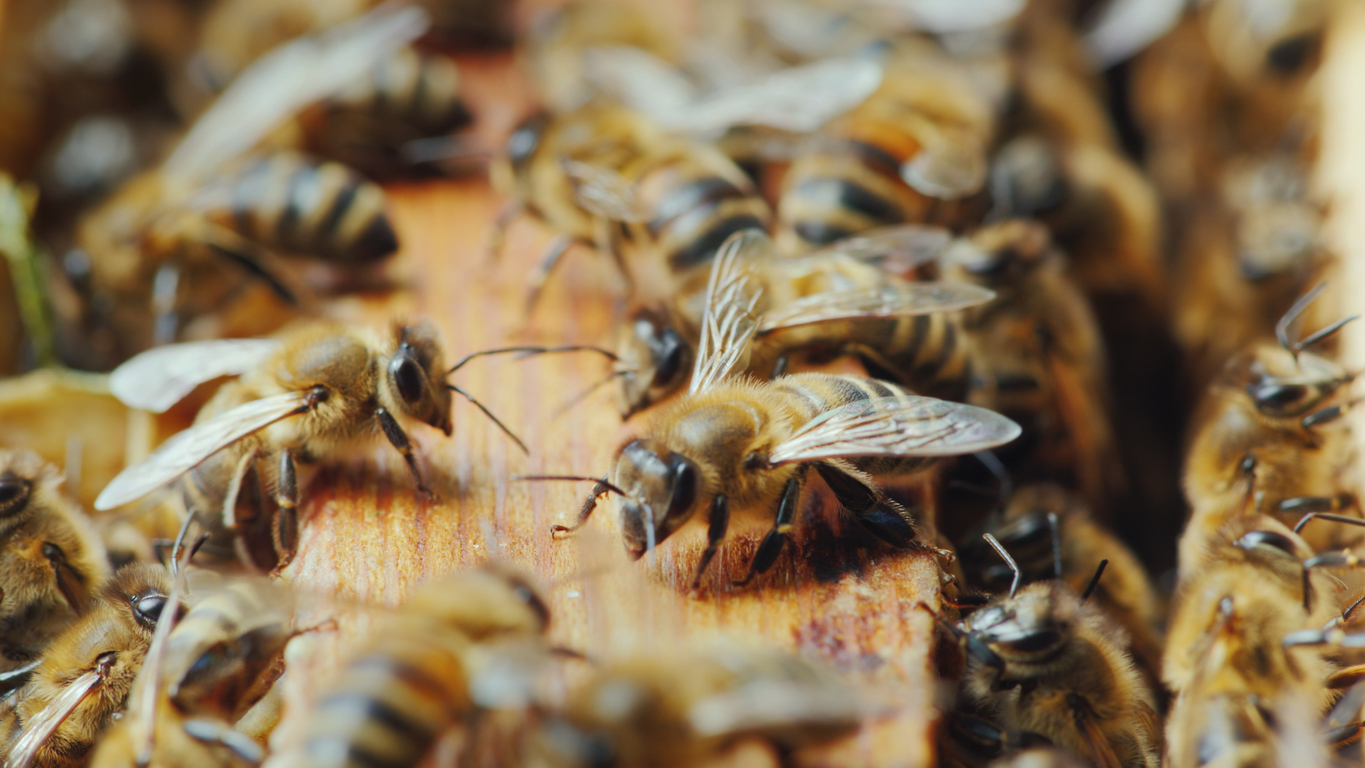Pesticides stunt brain growth in baby bees, study shows


A free daily email with the biggest news stories of the day – and the best features from TheWeek.com
You are now subscribed
Your newsletter sign-up was successful
The baby bees are not alright.
A new study found that pesticides not only impact adult bees, but they impair the brain development of baby bees who feed on the contaminated food.
Researchers at Imperial College London used micro-CT scanning technology to analyze brains of nearly 100 baby bees in different colonies, and published their findings Wednesday in Proceedings of the Royal Society B.
The Week
Escape your echo chamber. Get the facts behind the news, plus analysis from multiple perspectives.

Sign up for The Week's Free Newsletters
From our morning news briefing to a weekly Good News Newsletter, get the best of The Week delivered directly to your inbox.
From our morning news briefing to a weekly Good News Newsletter, get the best of The Week delivered directly to your inbox.
They found bees exposed to pesticides as larvae had smaller volume of the brain's "mushroom body" — a portion associated with learning. This leads to poor performance, meaning that as adults, they may not be able to "forage for food properly," per Phys.org.
This is particularly alarming, as bees pollinate roughly 75 percent of the fruits, nuts, and vegetables grown in the U.S. — one in every four bites of food people take is thanks to bees, who pollinate as they forage for food, according to the USDA.
Many previous studies have only focused on the direct exposure of adult bees, Gill said, "Our work highlights the need for guidelines on pesticide usage to consider this route of exposure."
A free daily email with the biggest news stories of the day – and the best features from TheWeek.com
Taylor Watson is audience engagement editor for TheWeek.com and a former editorial assistant. She graduated from Syracuse University, with a major in magazine journalism and minors in food studies and nutrition. Taylor has previously written for Runner's World, Vice, and more.
-
 The ‘ravenous’ demand for Cornish minerals
The ‘ravenous’ demand for Cornish mineralsUnder the Radar Growing need for critical minerals to power tech has intensified ‘appetite’ for lithium, which could be a ‘huge boon’ for local economy
-
 Why are election experts taking Trump’s midterm threats seriously?
Why are election experts taking Trump’s midterm threats seriously?IN THE SPOTLIGHT As the president muses about polling place deployments and a centralized electoral system aimed at one-party control, lawmakers are taking this administration at its word
-
 ‘Restaurateurs have become millionaires’
‘Restaurateurs have become millionaires’Instant Opinion Opinion, comment and editorials of the day
-
 Nobody seems surprised Wagner's Prigozhin died under suspicious circumstances
Nobody seems surprised Wagner's Prigozhin died under suspicious circumstancesSpeed Read
-
 Western mountain climbers allegedly left Pakistani porter to die on K2
Western mountain climbers allegedly left Pakistani porter to die on K2Speed Read
-
 'Circular saw blades' divide controversial Rio Grande buoys installed by Texas governor
'Circular saw blades' divide controversial Rio Grande buoys installed by Texas governorSpeed Read
-
 Los Angeles city workers stage 1-day walkout over labor conditions
Los Angeles city workers stage 1-day walkout over labor conditionsSpeed Read
-
 Mega Millions jackpot climbs to an estimated $1.55 billion
Mega Millions jackpot climbs to an estimated $1.55 billionSpeed Read
-
 Bangladesh dealing with worst dengue fever outbreak on record
Bangladesh dealing with worst dengue fever outbreak on recordSpeed Read
-
 Glacial outburst flooding in Juneau destroys homes
Glacial outburst flooding in Juneau destroys homesSpeed Read
-
 Scotland seeking 'monster hunters' to search for fabled Loch Ness creature
Scotland seeking 'monster hunters' to search for fabled Loch Ness creatureSpeed Read
